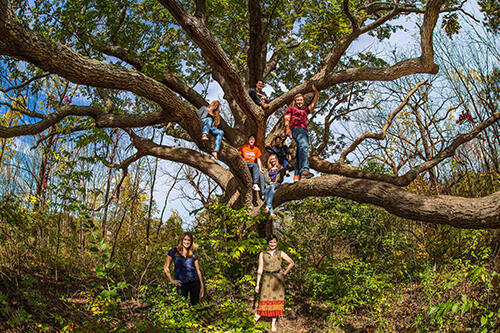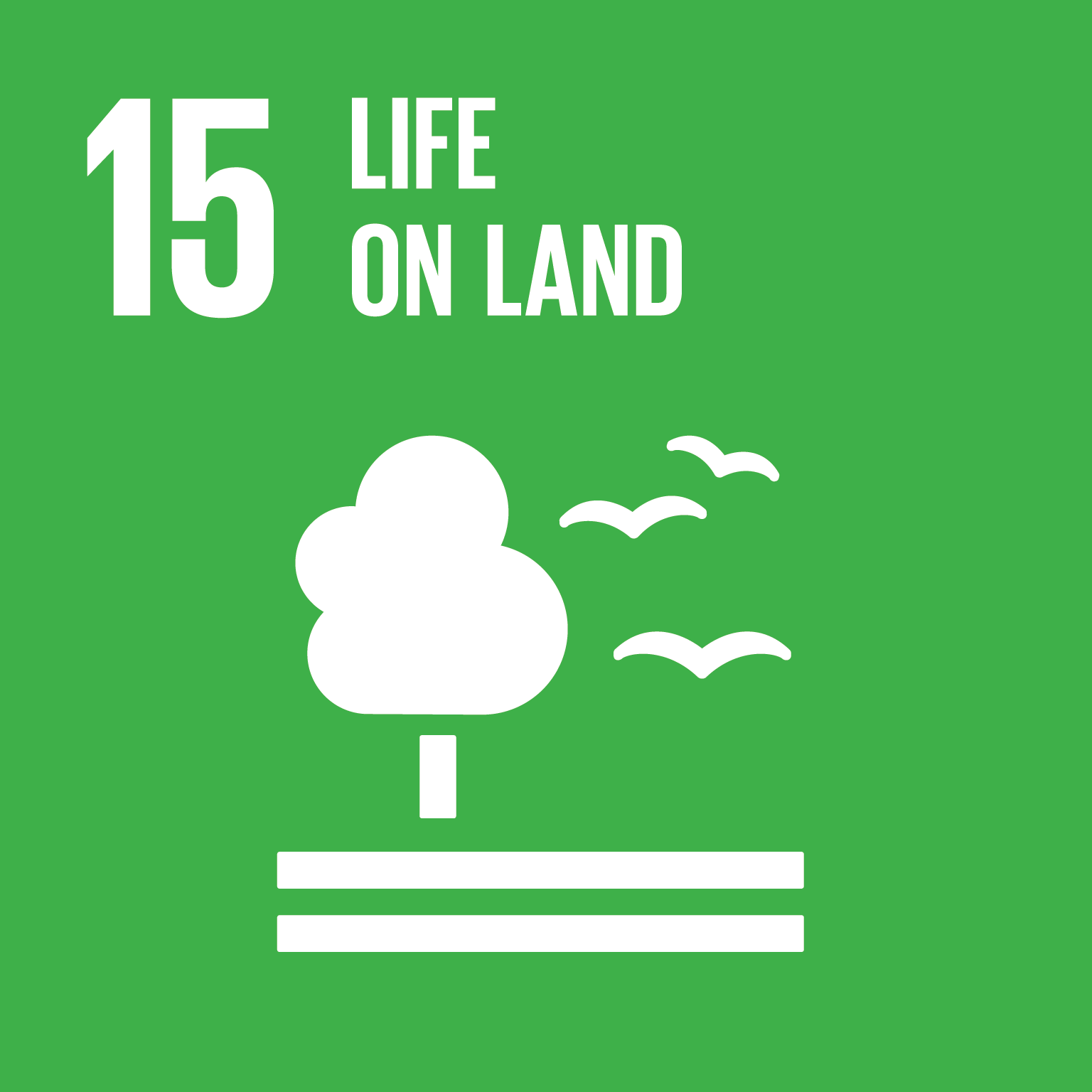
GEO club members in Roemer Arboretum.
 In the days leading up to Earth Week 2013, Jessica Kroenert ’15 and other members of the Geneseo Environmental Organization — GEO — picked 750 discarded water bottles from recycling bins on campus. They spent hours tying them in long strands, then hung the massive bottle chains in front of the College Union ballroom with a simple sign: “This is how many water bottles Americans use in one half second.”
In the days leading up to Earth Week 2013, Jessica Kroenert ’15 and other members of the Geneseo Environmental Organization — GEO — picked 750 discarded water bottles from recycling bins on campus. They spent hours tying them in long strands, then hung the massive bottle chains in front of the College Union ballroom with a simple sign: “This is how many water bottles Americans use in one half second.”
That means we use 2.7 million bottles every hour; more than 65 million every single day.
“Everyone looked really surprised by how many there were,” says Kroenert, vice president. “Our goal was to get students to think twice before buying bottled water, which is an incredibly unsustainable practice, and I believe we achieved that.”
The mission for the project is similar to all GEO’s work.
“GEO was founded with a premise to create an organization to promote environmentally friendly initiatives on campus and to the greater Geneseo and New York community, but also on a global scale,” says Jen Benson ’14, president.
GEO is Geneseo’s first sustainability-focused club and comprises about 40 environmentally conscious students from a variety of majors. They bond over potluck dinners and community-service trips to local farms, where they help with planting. They collaborate in group discussions about topics from urban sustainability to recycling guidelines and the importance of student activism.
“We work off each other's interests,” says Kroenert. “… You will definitely learn something new from other members.”
In collaboration with EcoHouse residence hall students last year, GEO also hosted a dumpster dive. Facilities crews saved a bag of refuse from each building for GEO members, who separated items that could have been recycled. Donning face masks and safety suits, GEO members weighed the “non trash” on the College Union patio. They saved a total of 73.2 pounds of bottles, cans and alternative recyclables like chip bags and shoes from being trashed through innovations in “upcycling” — transforming items into other uses.
GEO’s tradition of being very active on campus helped earn the college a spot on The Princeton Review’s list of “322 Green Colleges in 2013.”
Ultimately, GEO members strive to inspire individuals to choose earth-conscious products and actions and to help spark change in local and national sustainability initiatives. GEO members also serve on Geneseo’s President’s Commission on Sustainability, which promotes sustainable initiatives in Geneseo.
Former president Lisa Johnson ’13 says that through GEO she realized the importance of promoting sustainable life choices. She hopes to use her communication degree and GEO experience to pursue a career at an environmental nonprofit organization.
“GEO has made me a lot more aware of the choices that I make and the impact they can have,” Johnson says. “I learned how much I can do for both my community here and the community at large.”
— By Chelsea Butkowski ’15
Beyond the Blue Bin: Where Can I Recycle That?
Things that can be “upcycled” and transformed into a new use:
- Chip bags: TerraCycle takes discarded chip and other bags and stitches them into tote bags, wallets and other new items. Visit teracycle.com to contribute bags or purchase up-cycled products.
- Cell phones: Old phones can be refurbished or smelted to extract precious metals like gold, silver and palladium. Recycle them through call2recycle.com.
- Sneakers: Nike shreds your worn-out kicks to make Nike Grind material, used for tracks, sport courts and other surfaces. Donors have transformed 28 million pairs of shoes and 36,000 tons of scrap material since 1990 — used in more than 450,000 locations around the world.
- Wine corks: reCork will turn your corks into shoe soles. They’ve also planted 7,000 cork trees in Portugal. Drop-off locations are nationwide.